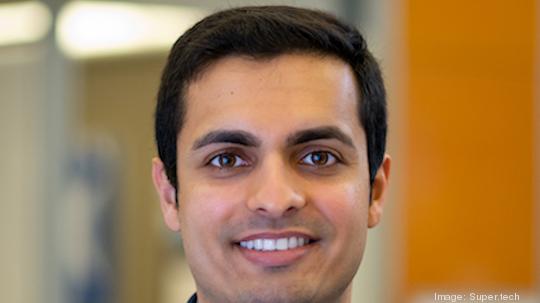
The promise of quantum computing is massive. The next-gen technology is expected to deliver a huge leap forward in computing, with machines that solve problems faster, as well as tackle challenges that today's supercomputers could never solve. And Chicago is quickly establishing itself as a hotbed for the new technology.
Last year the U.S. Department of Energy established five new quantum research centers, two of which are in the Chicago area: Argonne National Laboratory and Fermi National Accelerator Laboratory, both of which will receive $115 million in funding over the next five years. The University of Illinois also announced a quantum computing institute that will explore ways to create and connect quantum computers and networks, which is part of a $25 million, five-year award from the National Science Foundation.
Chicago is also home to Duality, the first startup accelerator program in the country that's dedicated solely to quantum computing. And among the companies in its inaugural cohort is Super.tech, a Chicago company that's developing software that makes quantum computing faster and more efficient.
Super.tech is building some of the foundational software for quantum computing. Launched last year by University of Chicago PhD Pranav Gokhale and UChicago computer science professor Fred Chong, the startup officially came out of stealth mode Monday. Its software platform is designed to connect quantum developers' applications to any quantum computer, whether it's from IBM, Google or Rigetti. The startup's aim is to help companies get their quantum programs running faster and get better performance out of their quantum computing hardware.
Super.tech is part of IBM's Quantum Network, which provides resources to top-tier quantum startups and access to IBM's systems. Super.tech's goal, Gokhale said, is to develop software for quantum computing that accelerates the advancements seen on the hardware side and help companies solve some of the world's most challenging problems.
"The whole mission of the company is to accelerate quantum computing," Gokhale told me. "We’ve built this software platform that boosts the performance of the underlying hardware ... This was science fiction until recently."
Early Super.tech users include Morningstar, a Chicago financial firm that uses the startup's tech to optimize a client's portfolio faster and more efficiently than ever before. But the applications for Super.tech's software are wide-ranging, like creating better fertilizer, which could in turn have major impacts on food prices and energy use, or helping companies solve complex business questions like where to open their next warehouse operations.
The startup's tech can help companies with more than just big data challenges. It's also useful for "small but hard data" Gokhale explained, like the traveling salesperson dilemma, a famous problem in theoretical computer science that aims to find the most optimal route for a salesperson to travel when visiting multiple cities.
"It's hard because the number of possibilities is astronomical, even with a small number of cities," he said. "A quantum computer can sort out those possibilities in parallel, and superposition them and return the best route."
Super.tech has raised $500,000 in pre-seed funding from the University of Chicago, Third Stream Partners and angel investor Mary Tolan. It also recently raised a $256,000 Small Business Innovation Research grant from the National Science Foundation.
In Duality, which is led by UChicago’s Polsky Center for Entrepreneurship and Innovation and the Chicago Quantum Exchange, the startup is receiving $50,000, along with access to office and lab space and industry experts who can help the startup grow. It also participates in Argonne's Chain Reaction Innovations incubator.
Having those quantum resources available in Chicago is what kept Gokhale, who worked in the startup scene in Silicon Valley before coming to UChicago for grad school, from fleeing to the coasts to start his business, he said.
"I thought if I ever did a startup I'd come back to San Francisco to do it," he said. "Duality has been amazing because I never thought that Chicago was going to be the place to start a company. But now I think it's the best place to have a quantum company."



